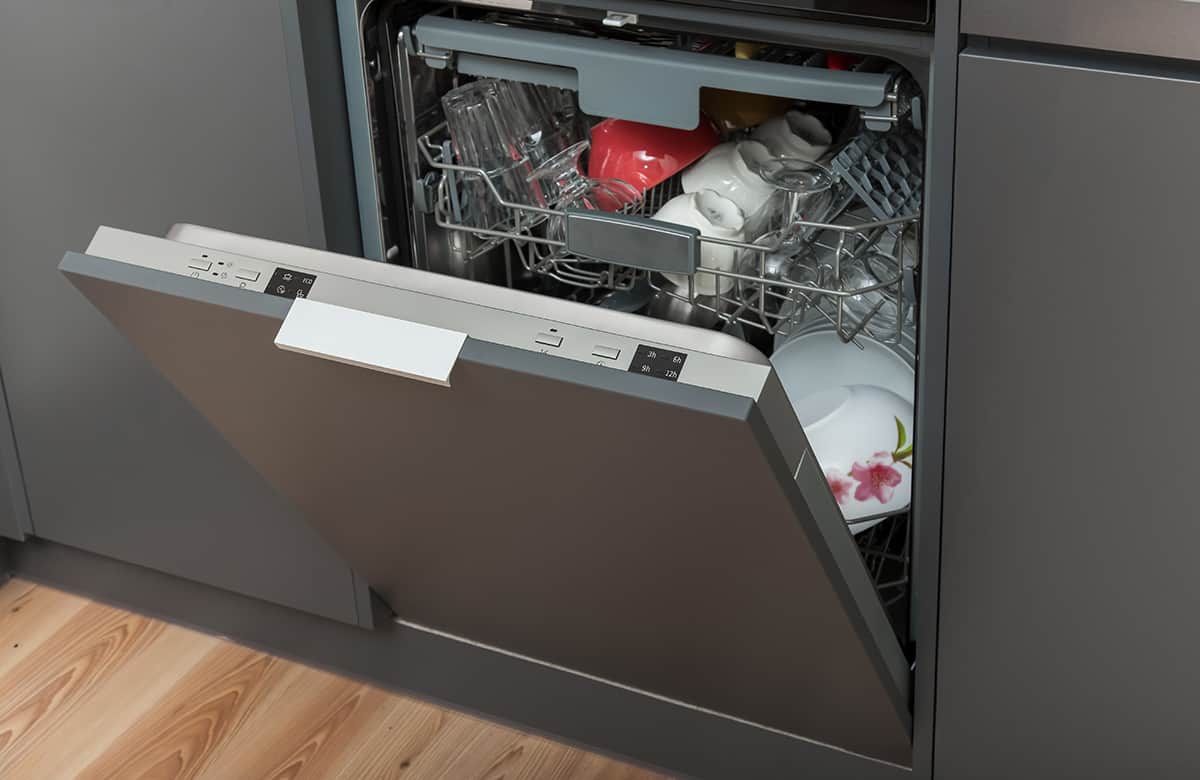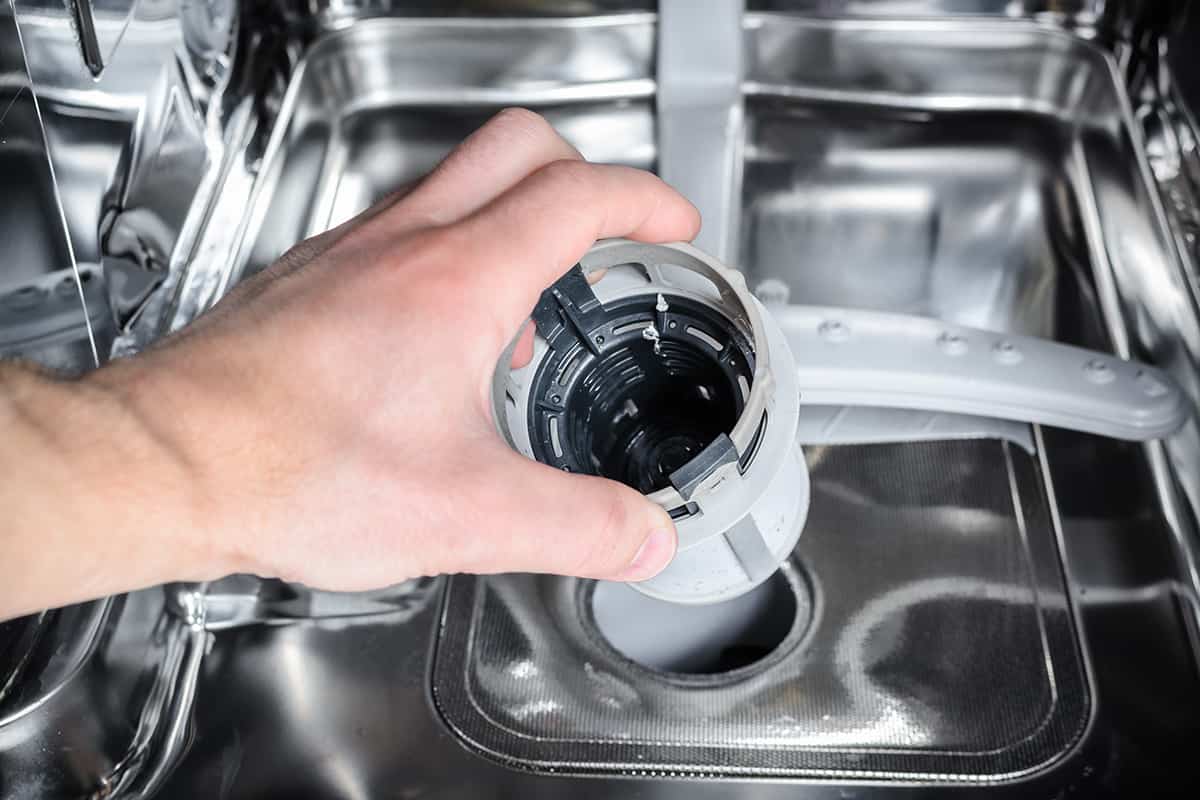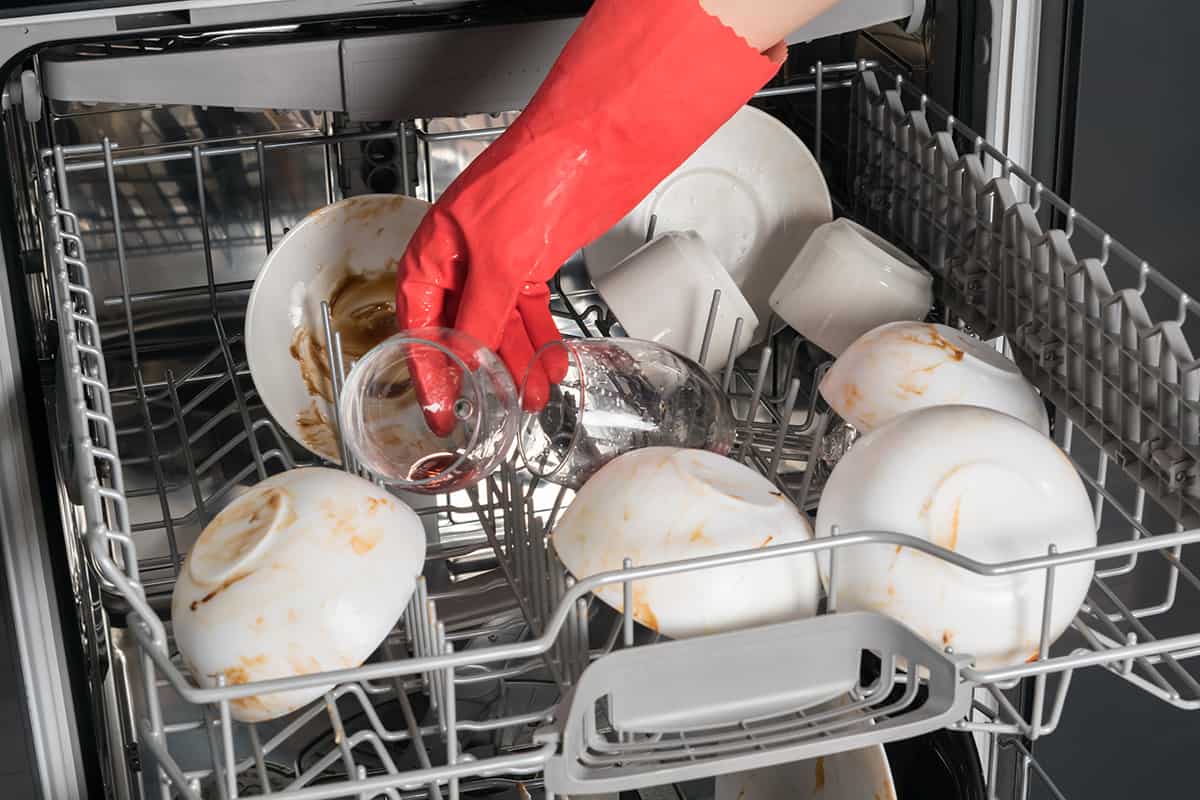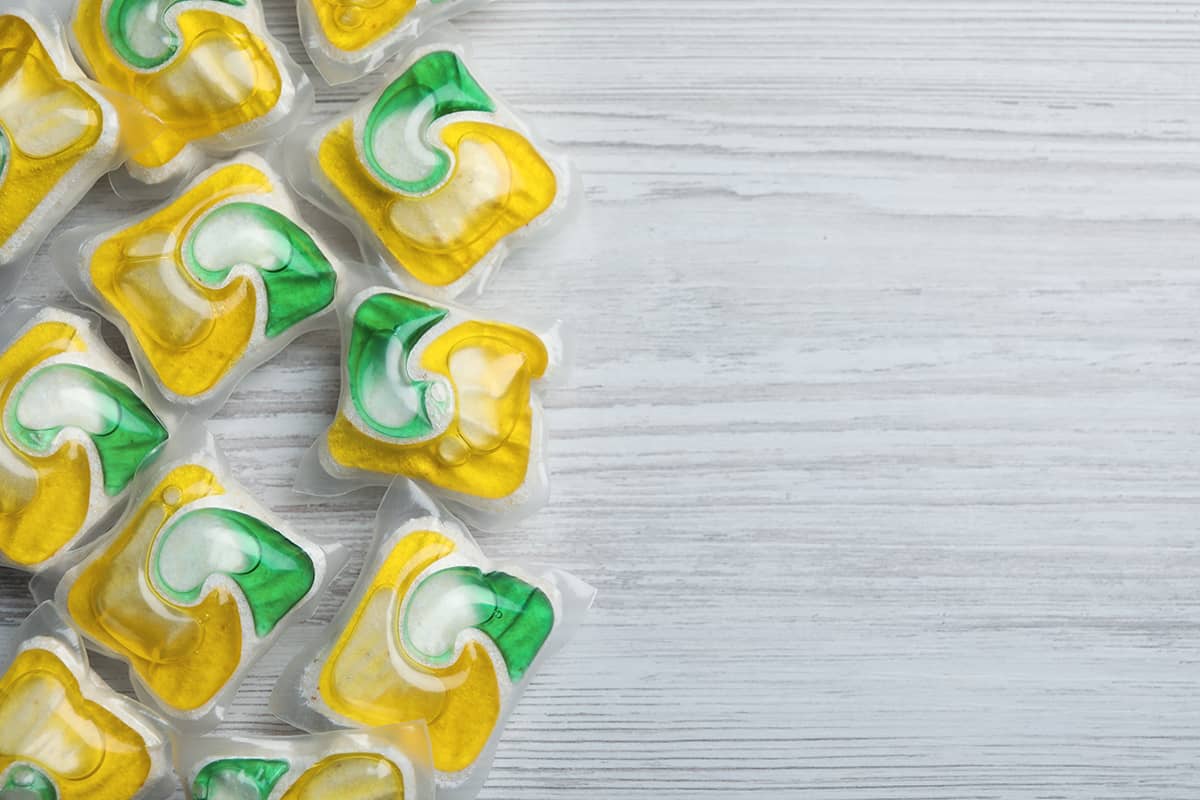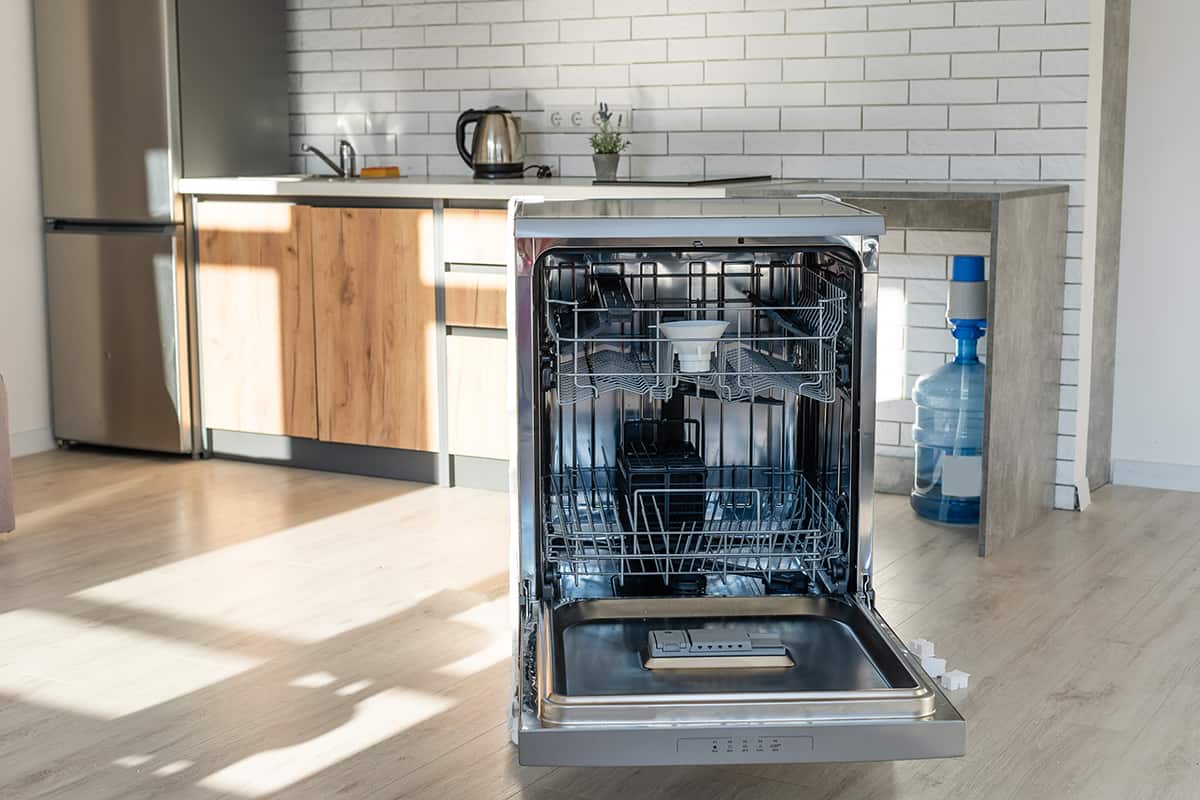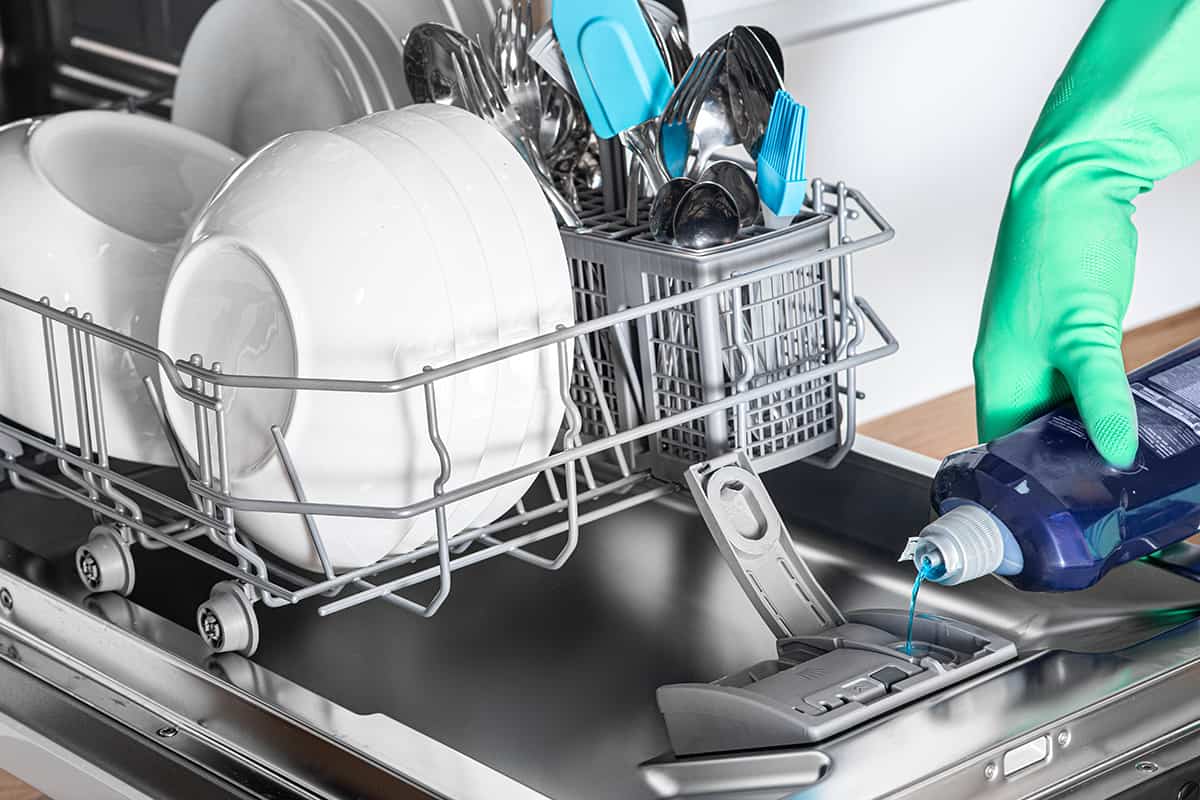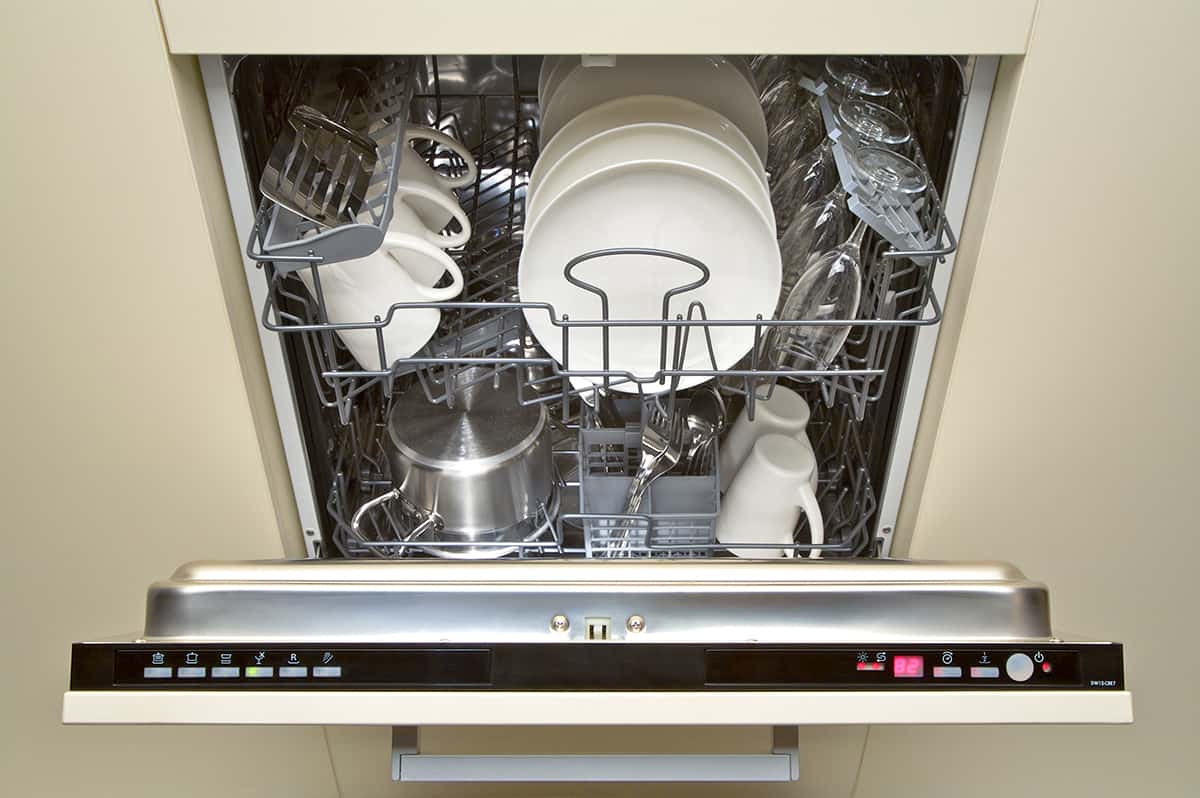No, you should not put dish soap in a dishwasher. It can cause excessive suds which can damage the machine and leave your kitchen in a foamy mess.
Dishwashers are fantastic appliances that make our lives easier, but they need to be set up correctly to work their best. One key aspect of setting up a dishwasher is making sure it’s level. If your dishwasher isn’t level, it can lead to problems like leaks, poor cleaning results, and even damage to the appliance over time.
Yes, Home Depot does install dishwashers. When you purchase a dishwasher from them, you can also pay for an installation service (usually starting from $99). They’ll send a professional to your home to do it for you.
Before you run your dishwasher, make sure the detergent dispenser has enough detergent packed in. On the off-chance you don’t have any and don’t want to make a quick trip to the supermarket, you may find yourself asking whether you can use anything else in place of dishwasher detergent.
Every household has a superhero that keeps dishes sparkling clean – the dishwasher. But, just like superheroes need their tools, dishwashers need clean filters to function effectively. Over time, these filters can get clogged with food particles and residue, reducing the machine’s performance. That’s why it’s crucial to know how to change a dishwasher filter, ensuring your dishes always come out spotless.
In short, it’s not necessary to rinse dishes before putting them in the dishwasher, as modern dishwashers and detergents are designed to handle food particles. However, scraping off excess food is recommended to prevent clogs and ensure optimal cleaning performance.
Dishwashers are amazing machines that help us keep our dishes clean with minimal effort. They use a combination of water, detergent, and heat to wash, rinse, and dry our dishes, glasses, and silverware. This modern convenience has become a staple in many homes, making our daily lives easier and more efficient.
Have you ever noticed a foggy or cloudy look on your glasses after running them through the dishwasher? It’s a common problem, and it can be pretty annoying. After all, clean glasses should look sparkling clear, not dull and misty! So, what can you do to stop this from happening in the future?
Just like soap helps clean our hands, dishwasher detergents work to remove food and stains from our dishes. They make sure our plates, glasses, and silverware come out clean and sparkling after each dishwasher cycle. More than just making our dishes look good, dishwasher detergents help keep our homes healthier. Clean dishes mean less chance of harmful germs sticking around.
Joel Houghton invented the first dishwasher in 1850, but it was Josephine Cochrane’s 1886 design that became the basis for modern dishwashers we use today. Her innovative creation was showcased at the 1893 World’s Columbian Exposition, making a big splash and paving the way for the modern dishwasher we know today.
A rinse aid is a liquid additive used in dishwashers to improve drying and reduce water spots and streaks on dishes. While it’s not mandatory, using a rinse aid can enhance your dishwasher’s efficiency and result in cleaner, drier dishes.
Dishwashers are essential appliances in many households, helping us keep our dishes clean and save time in the process. However, over time, your dishwasher can accumulate food particles, grease, and grime, which can lead to unpleasant odors and decreased performance.

